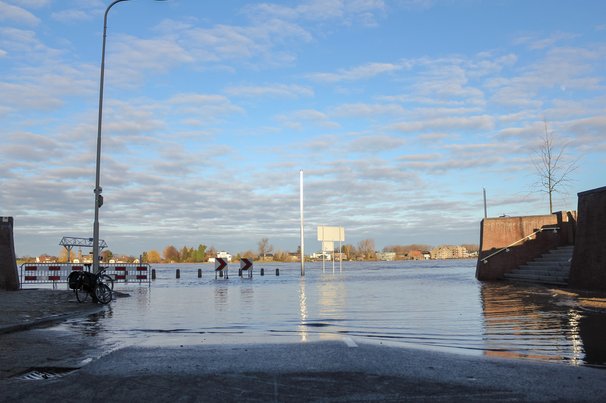29 juli 2014
2 minuten
Nieuws Urbanised delta regions have very different ways of dealing with flood risks. Their methods are often determined by cultural influences, says doctoral candidate Suwanna Rongwiriyaphanich. Buddhist Thailand, for example, is not necessarily receptive to procedures that are standard in the Calvinist Netherlands.
Over the last few years, Thailand has experienced severe flooding. The strategy deployed by the government and population is very different from that in the Netherlands. In 2011, inhabitants of some rural areas even dismantled the emergency dykes erected to protect the capital city Bangkok. “The feeling of collectivity and shared risk is not as strong in Thailand as in the Netherlands. This is partly a cultural difference”, explains Rongwiriyaphanich. “You have to take this into account as a planner if you want your policy to be implemented successfully. A purely technocratic approach will not solve the problem.”
In her dissertation entitled Understanding culture in territorial management and its implications for spatial planning, the doctoral candidate from Delft compares the Rhine-Meuse delta with several regions in the delta of the Chao Phraya River. Her work clearly shows that the two countries take a very different approach to the risk of flooding. Whereas Dutch territorial management focuses on fighting the water, the Thai approach tends to favour adapting to nature. In regions where daily or annual floods are common, the inhabitants simply stay put whatever happens. Their attitude is partly explained by the fact that the damage is usually limited to wet feet and soggy basements. It is very unusual for anyone to actually drown. But according to Rongwiriyaphanich, there is also a deeper cultural background. Modifying the situation to suit nature is more in line with the Buddhist idea that man is an integral part of nature. By going against nature man disadvantages himself.
Dutch Calvinism and its belief in dominion theology is the complete opposite. The idea of God's sovereignty on earth fits in perfectly with a population that wages war on nature. In this respect, it is entirely understandable that the Netherlands has been more willing to surrender reclaimed areas and conduct research into adaptive types of housing over the last few decades. It is a phenomenon that perfectly reflects the waning influence of Protestantism.
So in short, a strategy used to combat flooding successfully in one particular country is not automatically practical in another context. Planners must be careful not to offend cultural sensitivity and should alter methods to suit local circumstances where necessary.
Cover: ‘2014.08.29_Culturele verschillen bepalend_660’





